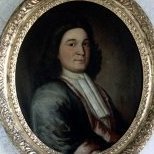Obituary: Nancy Wake "The White Mouse"
-
Recently Browsing 0 members
- No registered users viewing this page.
-
Topics
-
-
Popular Contributors
-
-
Latest posts...
-
25
How long have you been married to your Thai wife?
Met 23 years ago, married for 22 years. -
74
-
-
62
Report Canada to Recognise Palestinian State, Following France and UK
So they intend to recognise a terrorist run country? That sounds about right for the idiots making this statement. If Hamas was not present and running the area there would be a good reason to consider it but it is a stupid idea to consider when Hamas are still in charge of the area. -
211
Expat Discontent in Thailand
I think some really aren't quite getting the topic of conversation 😊 Unwittingly providing us all with some entertainment. -
31
Report Pattaya's Walking Street to Glow with New 3D LED Sign
The Indian clubs are a high expense, went in with a friend, and she decided not to get a drink, San Miguel 350 The thing is, Pattaya beach road caters to the most prominent tourist group. Right now, it is Indians. When it was all the Military, it was geared to what the soldiers wanted to eat. Then it was geared to pleasing the Western and OZ male tourist. 5 years from now it will be a different shop and those pushing Indian food will be making something else.
-
-
Popular in The Pub









Recommended Posts
Create an account or sign in to comment
You need to be a member in order to leave a comment
Create an account
Sign up for a new account in our community. It's easy!
Register a new accountSign in
Already have an account? Sign in here.
Sign In Now